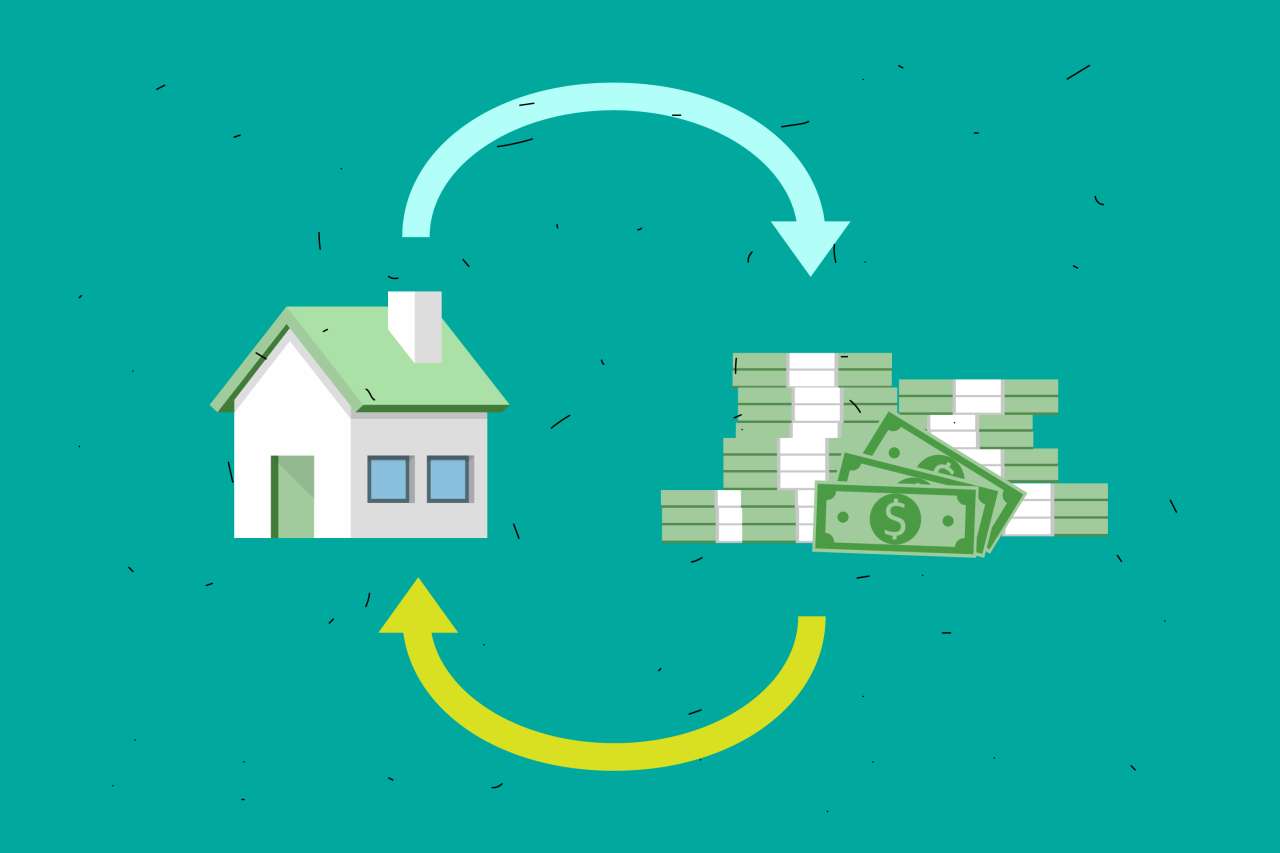A reverse mortgage loan allows the homeowner to borrow money while using their house as collateral. Whenever you take a reverse mortgage loan, the ownership of your property remains in your name, just like a standard mortgage. In contrast to a regular mortgage, borrowers do not make mortgage repayments with a reverse mortgage loan.
The loan is repaid whenever the borrower no longer resides in residence. Each month, interest plus fees are applied to the loan debt, and the balance rises. Also, with a reverse mortgage loan, borrowers must pay property taxes, including homeowners insurance, utilize the property as their primary residence, and keep the house in excellent shape.
How Does Reverse Mortgage Work?
In a reverse mortgage, the lender pays the homeowner rather than the owner making the payments to the lender. The payment method is at the homeowner’s discretion, and only interest is due on the money received.
The homeowner pays nothing upfront since the interest is incorporated into the loan balance. The owner also retains the home’s title. The homeowner’s debt grows during the loan, while home equity declines. A reverse mortgage uses the home as collateral, just like a forward mortgage does. The profits from the sale of the house after the homeowner moves out or passes away go to the lender to pay down the reverse mortgage’s principal, interest, mortgage, and fees.
Any surplus from the sale above the amount financed is given to the homeowner if they are still alive or to their estate if they have passed away. In some circumstances, the heirs may decide to settle the debt to maintain the house. Proceeds from reverse mortgages are not taxed. However, the homeowner may see them as income.
Reverse Mortgage Types
Proprietary reverse mortgages, home equity conversion mortgages, and single-purpose reverse mortgages are the three main types of reverse mortgages.
Let’s see how the three major forms of reverse mortgages stack up.
- Proprietary reverse mortgage:
Private reverse mortgage support services offer proprietary reverse mortgages exclusive to that firm. These loans are sometimes called jumbo reverse mortgages since they potentially surpass HUD’s HECM loan restrictions. They are also exempt from the HECM’s age restrictions. As a result, several lenders accept borrowers as old as 55 years old.
Because the federal government does not cover private reverse mortgages, you will not require counseling to qualify. You will not be required to pay monthly insurance fees. However, you may be required to pay a higher rate of interest.
- Home Equity Conversion Mortgage:
A Home Equity Conversion Mortgage is a government-backed loan governed by the Federal Housing Administration (FHA) and the United States Department of Housing and Urban Development (HUD).HECMs are FHA-insured and “non-recourse” loans, meaning you’ll never owe greater than the value of your home. When applying for a reverse mortgage, HECM borrowers must be 62 or older and attend a HUD-approved HECM counseling session.
These will educate you on the obligations, payback, tax ramifications, and other aspects of the HECM program. One may only obtain them through HUD-approved lenders.
HECMs have several payment options:
- Monthly Payments:
You get a monthly payment for a certain number of months (known as term payments) or for the duration of your principal home (called tenure payments).
- A simple one-time payment:
After closing, you will get a lump sum payment. Only fixed-rate reverse mortgages have this option.
- All of those above:
Additionally, you can combine a line of credit with regular term or tenure payments.
The lump sum, however, cannot be combined with any other form of payment. If you are seeking efficient solutions to cut loan processing expenses, then, the best course of action would be to outsource loan approval support services to a mortgage processing company.
- Single-Purpose Reverse Mortgage:
Single-purpose reverse mortgages are earmarked for a single, lender-approved aim, such as paying your property taxes or making home upgrades. These are often supplied by local and state governments and non-profit organizations and have cheaper interest and fee rates than some reverse mortgage programs. Eligibility standards are considerably less stringent, making them simpler to compete with than a HECM or jumbo reverse mortgage.
Conclusion
For older homeowners aware of the risks and trade-offs, a reverse mortgage may be a useful financial instrument. Anyone considering a reverse mortgage should ideally take the time to research these loans properly. By doing this, they will be protected from predatory lenders and con artists and be able to make an informed decision even if they work with a subpar reverse mortgage counselor. The loan will not come with just about any unpleasant surprises.
The reverse mortgage is still challenging to understand, even when offered by a respectable lender.
To make the greatest possible decision on how to utilize their home equity, borrowers must spend time familiarizing themselves with the subject. They should also compare lenders before choosing one, rather than choosing the first one approaching them. The federal government does not establish reverse mortgage rates; fees and rates can vary greatly between lenders.

